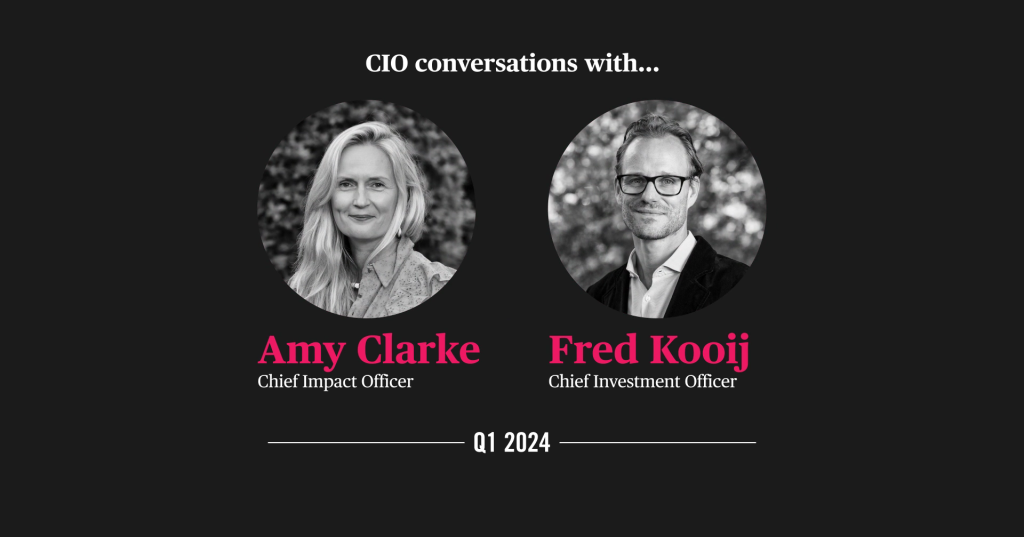CIO conversations - Q1 2024

Catch up with our CIOs, Amy Clarke and Fred Kooij, as they discuss the latest developments in investment and impact in their quarterly update.
In Q1 2024, markets adjusted as strong US job growth led investors to reconsider the need for rapid interest rate cuts. Stocks gained momentum in February, with AI-driven optimism boosting tech, while Japan’s stock market reached new highs due to supportive policies.
The EU took bold steps in impact regulation, passing the world’s first AI Act to balance innovation with safety, alongside advancing other digital and sustainability initiatives, although its Nature Restoration Law faced setbacks.
Lastly, 2023 was confirmed as the hottest year on record, underscoring the urgency of climate-focused investments and policies.





